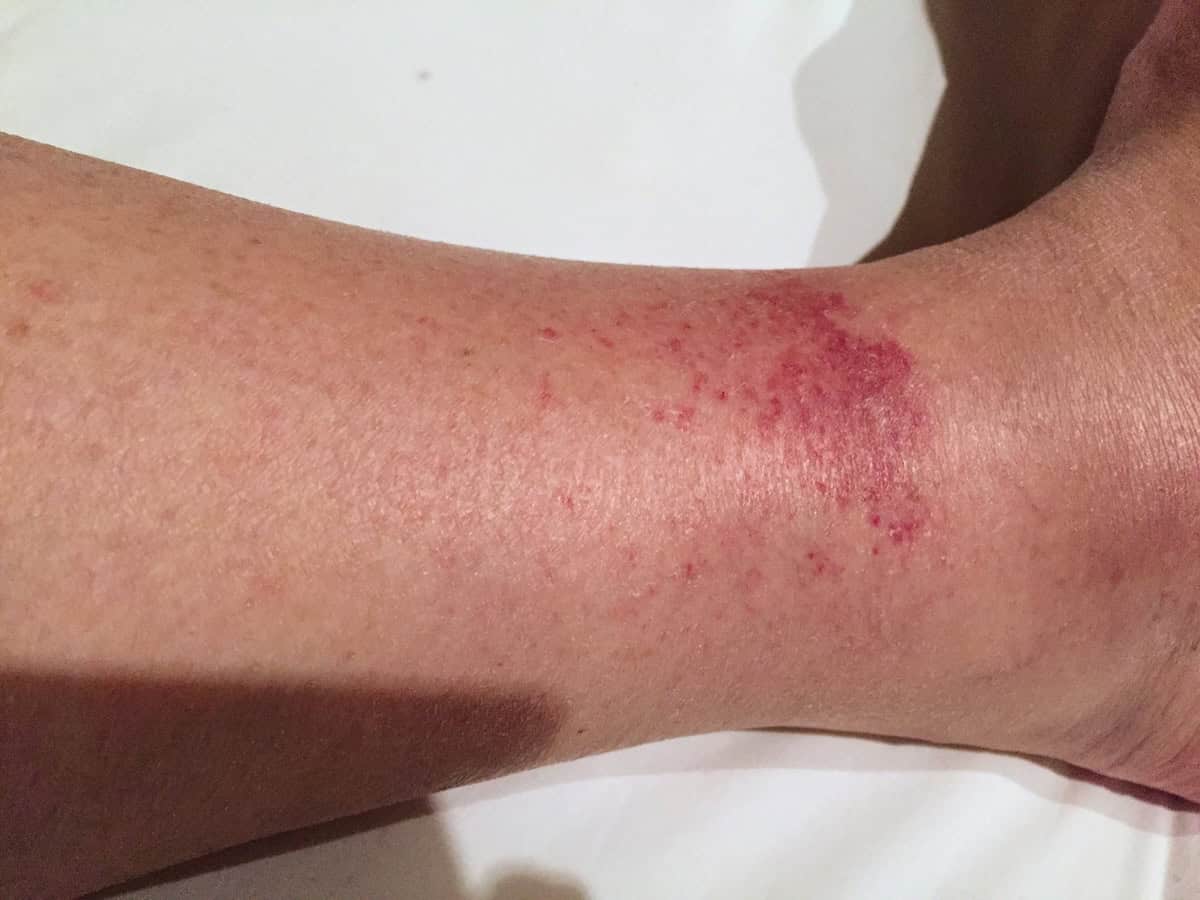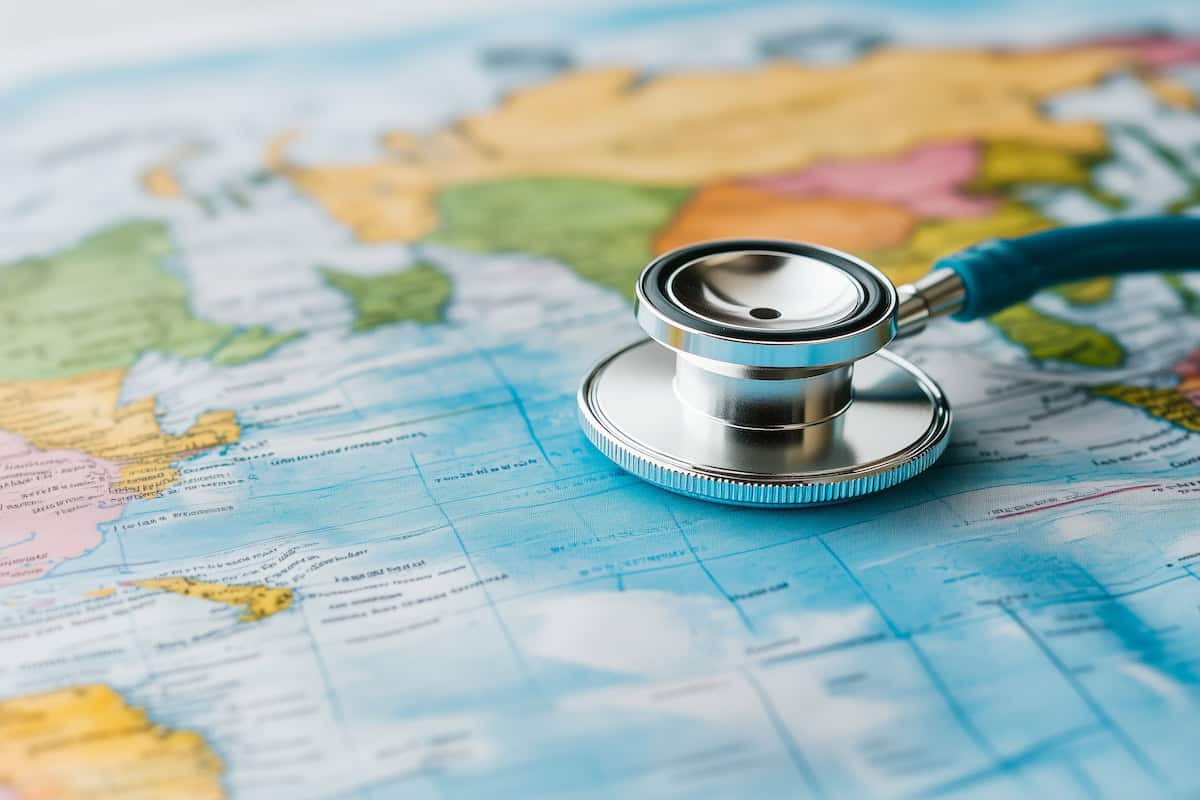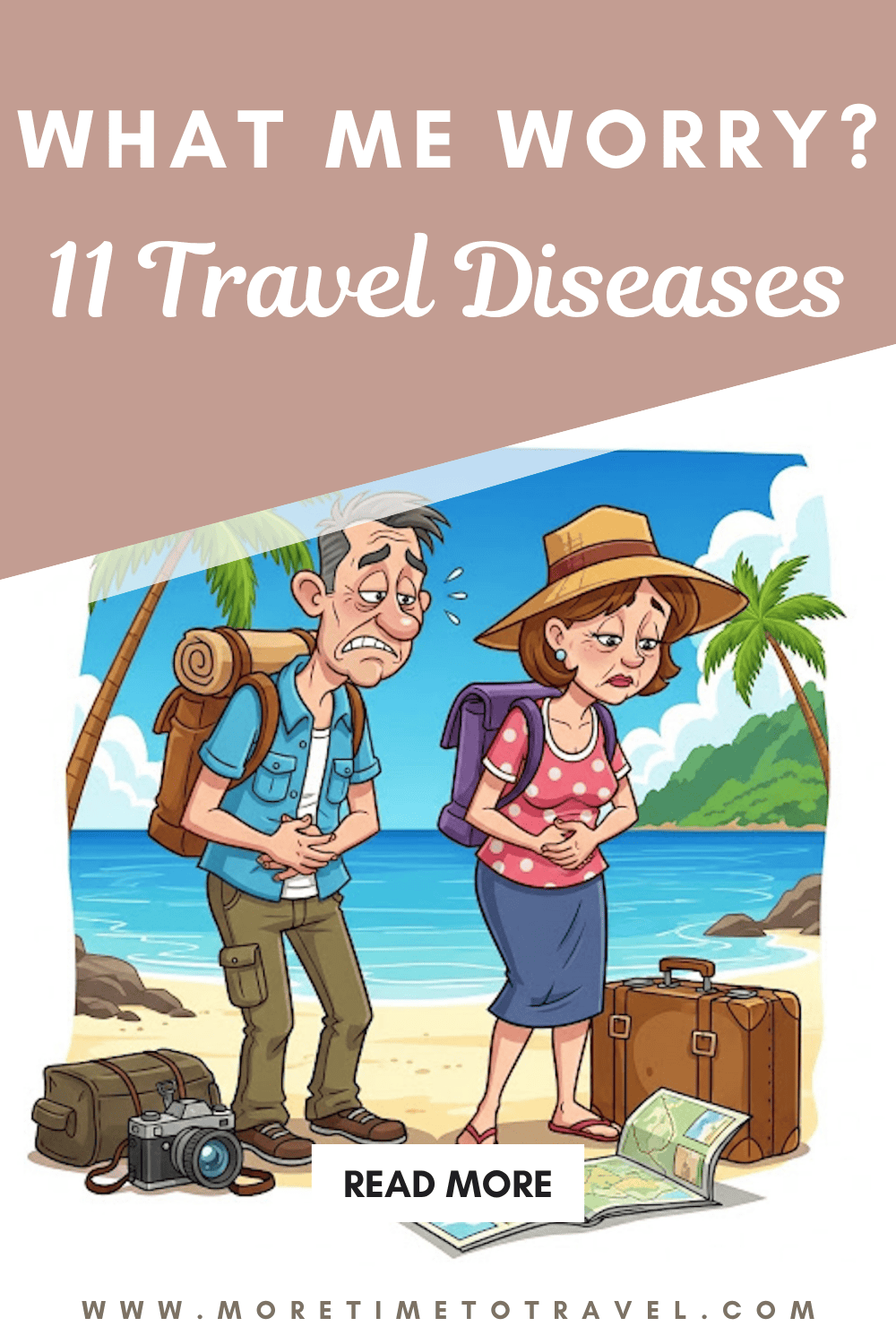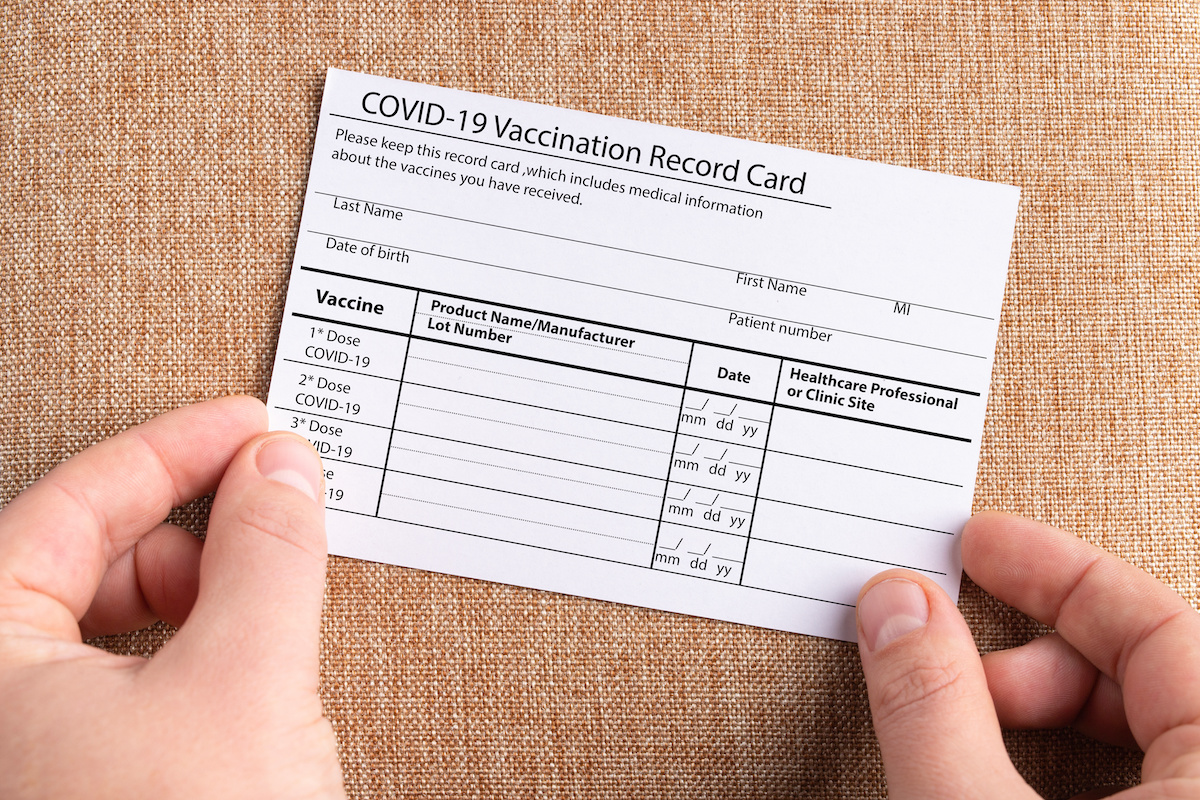MORE TIME TO TRAVEL

A health-related publication lists 11 travel-related illnesses that individuals of all ages should be aware of.
I’m not the most relaxed traveler, not by any means.
Like many seasoned travelers, I often find myself concerned about becoming ill, being stolen from, missing my flights, and ending up in a region affected by political tensions.
But my worries don’t stop me from going on trips. It simply means I am cautious about selecting where, when, and how I travel, as well as what I do once I arrive.
And indeed, I have a yearly travel insurance policy along with an emergency medical evacuation policy fromMedjet.
Notes From A Health-Focused Adventurer
The pandemic stole my breath, both literally and in a deeper sense. My husband and I had been on the move constantly, and following a fantastic trip to the Basque Country, we took a break that lasted almost two years,storing our suitcasesin the basement.
I made it through COVID (which is ironic because it wasn’t acquired during travel), never came down with malaria on our trip to Africa, avoided Norovirus on one of our many cruises, and didn’t catch Dengue Fever when it was widespread in Puerto Rico, and I’m back out there.
My Minor Travel Maladies
Tap wood. I haven’t experienced many travel-related illnesses, and all have been small issues. I can only recall three:
- I stumbled on a rough sidewalk during one of the initial days of our visit to Lake Como, and my knee was severely bruised and bleeding, making it difficult to walk for roughly a week. From that point on, I always keep extra large bandages with me.
- Two times, I fell illGolfer’s Vasculitis, once in Orvieto and another time in Florence. Even though I don’t play golf, this prevalent yet frequently overlooked condition (also known as Disney Rash) is not severe. This swelling of the blood vessels, usually marked by a rash above the ankles, happens when people walk a lot in warm, humid environments. It goes away on its own.

- During a visit to Bologna, I observed that the white part of one eye had become extremely red. I sent a picture of the eye to my primary care physician, who mentioned it appeared to be a ruptured blood vessel, which would also heal by itself. It eventually did.

I feel very lucky!
11 Health Conditions to Be Aware Of While Traveling
Out of an abundance of caution, I keep reviewing medical research to assist in making my travel choices. So when I came across a recently released article onMedscapeIt’s no surprise that I read it with a lot of interest, given the identification of 11 travel-related illnesses.
Even though the list is not completely comprehensive, it includes these medical conditions/diseases that travelers should be aware of:
1- Malaria
A type of infection caused by parasites that is common in certain parts of the world, particularly in Africa. Symptoms may consist of fever or chills, headaches, nausea, muscle aches, and anemia.
2- Dengue
Dengue, a disease spread by mosquitoes, is common in tropical and semi-tropical areas. Symptoms may consist of a high temperature, headache, feeling sick, vomiting, discomfort, and pain in the muscles or joints.
3- Cholera
This severe gastrointestinal infection occurs when individuals consume food or water that has been tainted, especially in regions where the illness has recently spread.
4- Tuberculosis
Resulting from a contagious bacteria, tuberculosis primarily impacts the lungs. Typical signs consist of coughing up mucus or blood, chest discomfort, fatigue, unintentional weight loss, fever or shivering, and excessive sweating during the night.
5- Zika
Additionally, a virus transmitted by mosquitoes, known as Zika, started to be detected in the United States (mainly in Florida and Texas) roughly ten years ago. The symptoms may consist of fever, skin rash, joint discomfort, and redness of the eyes. It is particularly important for pregnant women to take precautions against Zika.
6- Measles
Measles is a viral infection that spreads through the air and is extremely infectious, particularly for individuals who have not received vaccinations. The illness can lead to a high temperature, coryza (swelling of the upper respiratory system), eye inflammation, a persistent cough, and Koplik’s spots, which are tiny white marks located on the inner cheeks. A skin rash typically develops approximately two weeks following exposure.
7- Chikungunya
This virus is also transmitted through the bite of an infected mosquito. It was first discovered in Tanzania in 2024 and has since spread to the Americas and the Caribbean. The primary symptoms include fever and joint pain.
8- Polio
Vaccination offers protection against this virus; nevertheless, there is currently no treatment available. This sudden infection impacts the mouth and nose, the gastrointestinal tract, and the central nervous system. Those planning to travel to areas where the illness is common are encouraged to get vaccinated.
9- Yellow Fever
Yellow fever is mainly transmitted through the bite of an infected mosquito in sub-Saharan Africa and the tropical regions of the Caribbean. Initial signs can consist of fever or chills, intense headaches, back pain, body aches, nausea or vomiting, and feelings of tiredness or weakness.
10- Typhoid Fever
This bacterial infection is transmitted via contaminated food and water. Initial signs typically include fever and stomach discomfort. As the illness advances, fever and intense diarrhea may occur. The condition is prevalent in developing countries because of inadequate hygiene practices.
11- Rabies
Rabies is an acute form of encephalitis caused by bites or scratches from animals that are infected. It is present on all continents except Antarctica. The initial signs are not specific, but if left untreated, the illness can be deadly.
Important Points from the Travel Illnesses List

If you’re planning to visit a country where one of these illnesses is common, it’s important to see your primary care physician or a specialist in travel medicine. They can check that your immunizations are current and provide guidance on any extra steps you should take.
Because mosquitoes spread various of these illnesses, preventing mosquito bites is crucial. Basic measures, such as dressing in protective clothing and applying insect repellent like DEET, can make a difference.
Life inherently carries risks, and how much risk individuals are willing to take differs among travelers. As our bodies’ defenses decline with age, the dangers increase for older travelers. Nevertheless, through self-education and thorough preparation for a journey, we can greatly minimize the chances of encountering travel-related illnesses and health problems, as well as ease any anxiety before departure.
Save to Pinterest!!

MORE TIME FOR JOURNEYS – Discover new locations and enjoy new flavors



